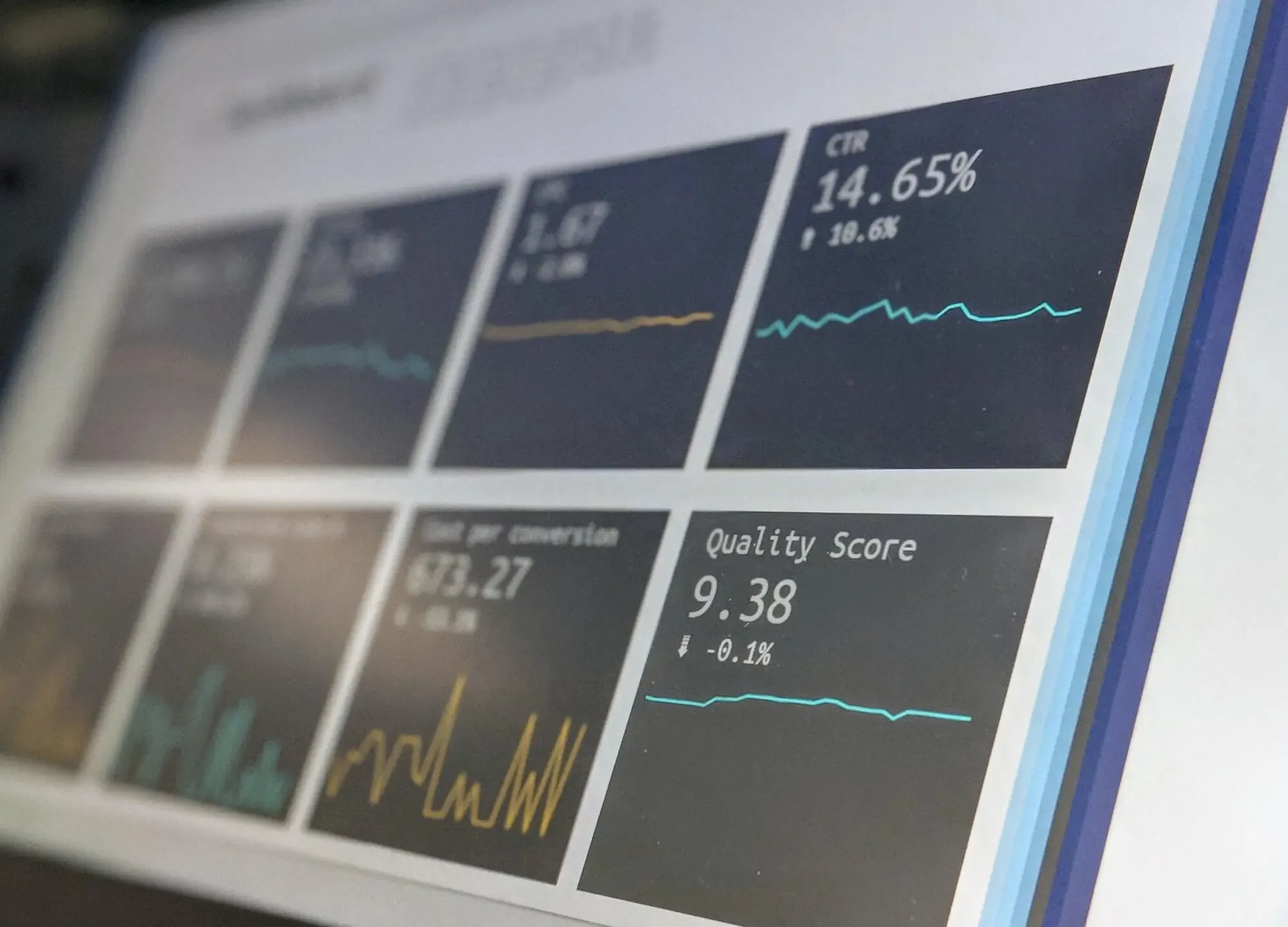Healthcare
Healthcare Business Intelligence: The Key to Better Business Decisions

The healthcare industry is one of the most data-driven industries, but it’s often difficult to get that data in a way that provides insights. From tracking patient outcomes to monitoring clinical trials and gathering data from hospital systems, there are an overwhelming number of metrics that need to be monitored. However, it’s often difficult to get this data in a way that provides insights into how your organization is performing.
And it’s not just the volume of data that’s difficult; there are often gaps in the data that make it difficult to get a complete picture and make informed decisions. Healthcare organizations need real-time information, but they also need historical data and information from disparate systems.
This is where business intelligence in healthcare comes in. Healthcare BI allows companies to collect, store and analyze all of their data from a single source so that they can gain insight into their performance over time. In this way, businesses are able to make smarter decisions about how they do business—decisions that ultimately benefit the company as well as their customers.
BI has become an essential tool for businesses, but many companies are still struggling to get the most out of their BI tools. This is because there is a lot of confusion about what exactly business intelligence for healthcare entails and how it can benefit your organization. In this article, we'll explore the role of business intelligence in healthcare and how it can benefit your business.
Key Elements of the Business Intelligence in Healthcare
Business intelligence for healthcare is not a one-size-fits-all solution. It’s a complex system that can be broken down into three key components: data, analytics, and reporting. These three elements are all interrelated, but each one plays an important role in providing value to your business.
Data
Data is the foundation of healthcare BI. Without it, you wouldn’t be able to produce any analytics or reports. Your data should be accurate and up-to-date so that it provides a clear picture of your business performance and market trends. This means that you have to have a solid process in place for collecting, storing,e and distributing data across your organization.
In order to make informed decisions, you need to know where your data is coming from and how it’s being used. With business intelligence software for healthcare, you can keep track of all the sources of your company’s data and gain a better understanding of how it flows through your organization.
Analytics
Analytics is the process of analyzing data to identify trends and make predictions. It measures your performance against specific objectives, such as customer satisfaction or sales revenue, and helps you make decisions about how to improve. The more sophisticated your analytics become, the more accurate they’ll be in predicting future events based on past trends.
Analytics can help you identify trends in your business and make predictions based on past events. It’s important to have a process in place that ensures your data is up-to-date, accurate, and relevant. This will allow you to make the most of your analytics by learning from it and making adjustments where necessary.
Reporting
Reporting is a critical component of any business intelligence software for healthcare. You need to be able to pull together all of your data and analyze it in order to make decisions about your business. With reporting solutions, you can generate reports on various aspects of your company and share them with the appropriate stakeholders.
BI Benefits in Healthcare Data Management
A robust healthcare business intelligence software can help organizations to better manage their data.
Analysis and Prediction
With predictive analytics capabilities, you can identify trends in your data and predict future issues before they occur. This will allow you to proactively address problems instead of reacting after they happen.
Tracking of Critical Metrics
Healthcare business intelligence software can be used to track important metrics, such as the number of patients served and the average length of stay. This data can then be used to compare your hospital or medical facility against others in your area or industry. This will help you understand where you are excelling and where you have room for improvement.
Cost Analysis
Business intelligence software for healthcare can be used to track and analyze costs. This type of software allows you to keep track of your company’s expenses, from travel to payroll. This will help you identify areas where you are spending too much money and make adjustments to your operations.
Managing a Network of Locations
Business Intelligence software for healthcare can help manage multiple locations for a company with ease. This type of software allows companies to have access to all their data from any location with an internet connection, making it easier for managers to make decisions from anywhere in the world.
Managing Customer Relationships
Business intelligence software for healthcare can help companies manage their customer relationships. This type of software allows you to better identify the needs of your customers and provide them with a better experience while doing business with you.
Tracking of Marketing Campaigns
Healthcare business intelligence software can be used to track the effectiveness of your marketing campaigns and other efforts by giving you access to information about customers, competitors, and industry trends. This data can help you understand what is working, what isn’t, and how you can improve your efforts.
What’s more, healthcare BI can be used to track and analyze the sales efforts of your organization. This will allow you to identify areas where you are having the most success and those that need improvement.
Analysis of HR Management
Business intelligence software can be used to provide a detailed analysis of how staff members are performing and assist in hiring decisions. This information can also be used to develop training programs that will help your employees improve their performance and allow you to identify those who may not be a good fit for the organization.
Thinking of the BI system for your healthcare company? Let us know about a project you have in mind.
Healthcare Business Intelligence in Action: Use Cases
Enterprises can leverage business intelligence to better understand their customers, employees, and competitors—and use that knowledge to improve their performance. Healthcare organizations are no exception.
Enterprises are using business intelligence to improve the way they deliver healthcare. They’re using it to make better decisions, find new insights, and solve problems more quickly. Business intelligence is a tool that can help healthcare organizations understand their data more deeply—and make decisions based on those insights.
Here are four ways enterprises use business intelligence in healthcare:
1. Improve decision-making: Healthcare organizations use business intelligence to make better decisions about how they deliver care. They can use data from multiple sources, including patient records, claims data, and claims processing systems. This allows them to create dashboards that provide real-time data on the status of their operations as well as trends over time. With this information in hand, hospitals are better able to understand what’s working (and what’s not) with their operational processes and make adjustments accordingly.
2. Improve patient experience: Healthcare organizations can use business intelligence to improve the patient experience by providing more personalized care. They can collect data from patients and their families, including demographic information, medical history, and lifestyle choices such as diet and exercise. This allows them to create tailored treatment plans for each person that are based on their specific needs.
3. Improve operational efficiency by tracking data on a number of different areas. This can be done by monitoring patient flow, including how long it takes for patients to get from the emergency room to a bed in the hospital, how long patients stay in each department, and which diagnoses are most common in a given area. It can also be used to identify trends in treatment costs, which can help hospitals avoid overpaying for services or administering unnecessary tests.
4. Improve financial performance: Business intelligence helps hospitals improve their financial performance by providing them with valuable insights into the way their business operates and how they can make changes that save money. This can be done by analyzing patient data to determine which diagnoses are most common in a given area, then focusing on treating those conditions better than anyone else.
In addition, it can be used to identify trends in treatment costs, which can help hospitals avoid overpaying for services or administering unnecessary tests. Healthcare business intelligence also allows hospitals to compare their performance against their peers and competitors in order to see where they stand in the marketplace.
Tools and Technologies for Healthcare Business Intelligence
Tools and technologies for healthcare BI can be used to help hospitals improve their operational efficiency and profitability by providing them with actionable data. They include:
- An enterprise data warehouse that stores historical, current, and predictive data about hospital operations; patient flow; diagnosis and treatment costs; pricing models; revenue forecasts; quality of care metrics; and more.
- A business intelligence application that provides users with access to the information stored in the enterprise data warehouse so that they can analyze it using pre-built dashboards or create new ones based on specific criteria.
- An analytics application that provides users with access to the information stored in the enterprise data warehouse so that they can analyze it using pre-built dashboards or create new ones based on specific criteria.
- A predictive modeling application that uses machine learning algorithms and historical data to make predictions about future outcomes for hospital operations and patient care.
- A data visualization application that allows users to view data in a number of different ways and make comparisons between different metrics.
- A reporting application that lets users create reports based on their own criteria, such as the number of patients seen or the amount of time spent on each task, etc.
ElifTech Case: Husky Intelligence
Husky Intelligence is one of the ElifTech projects that was aimed at the development of business intelligence software. Husky ERP helps users communicate with outside vendors, manage their work and services, and keep track of time. The goal was to integrate and synchronize a customer web portal with the Husky ERP to ensure secure data transfer.
Our challenge was to create a secure connection with Husky ERP. The team analyzed and collected the most suitable team structure, tech stack, and development approach. They used .Netcore, React.js, AWS, and PostgreSQL to build the website and connect it securely with Husky ERP. At the same time, the ElifTech designers refined the website’s UX and UI.
We covered the following functionality:
- Admin panel
- Job management system
- Time tracking system
- Service management system
- Synchronization with Husky ERP database
- Email notification system etc.
The final solution allowed Husky to provide faster and more efficient service to end clients.
Final Thoughts
Let’s summarize the key takeaways from this post in a brief list:
- A reliable healthcare business intelligence system is a must-have for businesses looking to stay ahead of the game.
- Artificial intelligence and machine learning in healthcare business intelligence are hot trends. These technologies ensure more accurate BI predictions, operation efficiency, and better decision-making processes.
- Cloud-based healthcare BI enables data access from anywhere, on any device. It benefits supply chain managers who need real-time access to data while on the go.
- Businesses are looking for ways to store data more effectively while keeping it clean, accurate, and reliable.
- Advanced analytics tools ensure more precise analytics. This gives a more impactful image of their business patterns and trends.
Consider ElifTech as your partner in delivering cutting-edge custom BI solutions for your healthcare company. Let us know about a project you have in mind.
